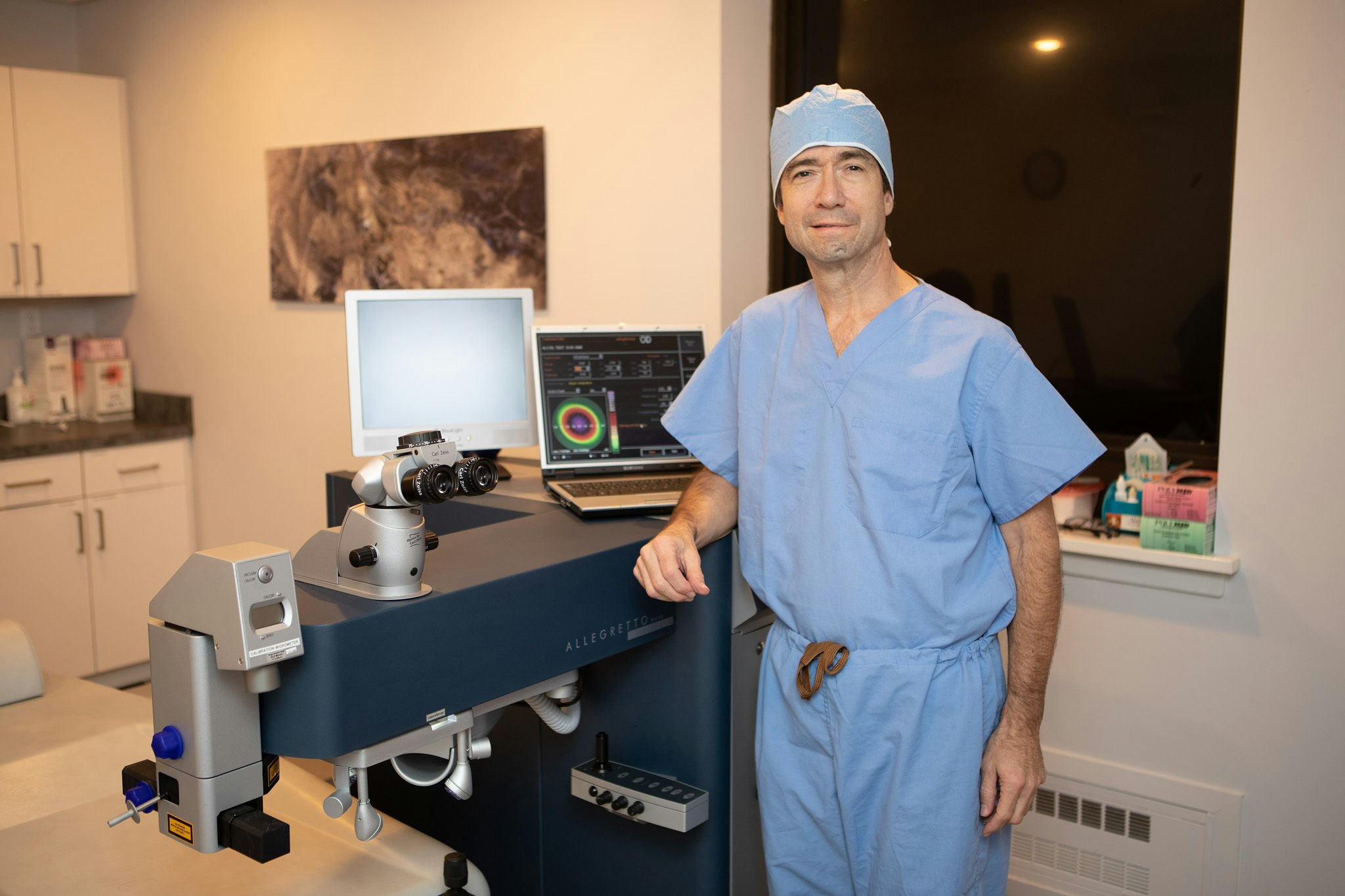
Macular Degeneration
What Is Macular Degeneration?
/
Macular degeneration is an age-related disease in which the macula—the part of the eye responsible for central vision—slowly degrades over time. If left untreated, it can lead to central vision blindness.
A Closer Look at the Macula

Worried You Have Macular Degeneration? Contact Us at Any Time
If you have noticed vision changes, like blurring or blind spots, you may need care from an eye specialist. Patients can reach our office and speak to our dedicated team.
Common Causes Of Macular Degeneration
Macular degeneration is a leading cause of vision loss in America. Since patients 55 and older are most at risk for macular degeneration, it is also known as age-related macular degeneration, or AMD. In addition to your age, these risk factors can affect your chance of developing macular degeneration:
- Smoking
- Obesity
- Race (more common in Caucasians)
- Family history
- Gender (more common in women)
- Cardiovascular issues
Does Age-Related Macular Degeneration Always Have Symptoms?
Unfortunately, it does not. In some cases, patients may not even know that they have this disease.
That's why it's important to understand the risk factors and attend your regular vision appointments. Each standard appointment at our Wilmington, Dover, and Newark offices includes eye disease screening.
If you are at risk for age-related macular degeneration, we recommend you visit us for an exam each year or whenever you begin experiencing symptoms.
If You Have Macular Degeneration Your Vision May Look Like This

Act Now If You've Noticed Vision Changes
It's common to experience changes in your central vision as you age. However, if those changes include blind spots and trouble seeing in low light, they may be a result of macular degeneration, and should be discussed with a doctor as soon as possible.
You can potentially improve your outcome and prevent wet AMD (the more advanced form of the disease) by seeking eye treatment today. Our compassionate ophthalmologists can help you feel at ease and in control at your appointment.
We can diagnose age-related macular degeneration during an annual comprehensive eye exam or specialized appointment. We can then begin vision-saving treatment with methods like photodynamic therapy and injections. To protect your sight, contact our Delaware practice or call:

"I would not go to any other doc." Wilmington, DE, Trusts Our Team
I am grateful to have Dr. Otojare as my optometrist. My experience yesterday was great. Love how Dr. O explains everything as she goes along and she takes time to answer your questions. I would recommend her to others. Dr. O you are awesome!!!!
View on Google
My doc has been treating me for over 11 yrs. She is caring and very professional. I would not go to any other doc for my treatment.
The staff and techs are exceptional and caring as well.
The Two Types Of Age-Related Macular Degeneration
Dry AMD
Dry age-related macular degeneration is characterized by the slow breakdown of the cells of the macula. As a result, your central line of vision becomes blurry, which is one of the first symptoms.
Another symptom is the presence of drusen, or yellow tissue deposits, under the retina. The amount and size of the drusen characterize each stage of dry AMD, with more and larger drusen appearing during the advanced stage. Dry AMD can quickly turn into wet AMD with no warning.
Wet AMD
Wet age-related macular degeneration always begins as dry age-related macular degeneration. Wet AMD results from the development of leaking blood vessels beneath the macula, which impairs vision.
A quickly advancing condition, wet AMD causes the majority of AMD-related blindness cases. An early sign of wet AMD is straight lines appearing crooked and curved, which can make daily activities like driving or biking hazardous.
Exploring Wet AMD Treatment
Thermal Laser Photocoagulation
Wet AMD is known for resulting in leaking blood vessels. We can use a targeted laser beam to seal them off.
Photodynamic Therapy
This treatment uses a laser in combination with a light-activated drug called Verteporfin to eliminate leaking blood vessels in the eye. This quick and painless therapy can temporarily slow the progression of vision loss.
Anti-VEGF Injections
We can inject anti-vascular endothelial growth factor (anti-VEGF) into the eye. The anti-VEGF will inhibit the growth of abnormal cells that can cause the disease to progress.
"Always a pleasure to be there." Why Wilmington, DE, Patients Visit Us
I’m extremely happy with the level of care and professionalism of the doctor and technicians and those responsibly for scheduling , billing, etc. My vision has significantly improved as well!! I believe Dr. Minkovitz is the best eye surgeon in Delaware.
View on Google
ALWAYS a pleasure to be there. Dr. O is the nicest, sweetest person. Never had a rude staff person ever. They know what they are doing!
THANK YOU EVERYONE!! :)) :))






